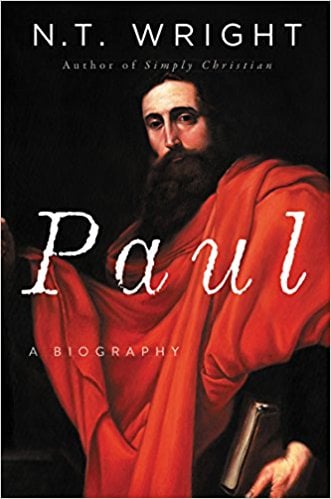Q. Another of the emphases in this work is the sheer energy of Paul. People just couldn’t keep up with him and may have been prone to ask— ‘Do you ever sleep’ (something I’m sure you, as I have been asked in view of our writing output!)? Perhaps some of this is just Paul’s robust makeup, but I sense that actually it mainly has to do with just how sold out he is to the Gospel, and how much he sees it as urgent to get the Word out to as much of the Empire as he could reach. One gets a sense of this in Rom. 15 when he astoundingly claims— ‘I’m done from Jerusalem all the way to the northwest coast of Greece. Westward Ho next!’ Does this have something to do with, as you suggest, his seeing himself as the fulfillment of the servant of Isaiah 49, even to some extent, the suffering servant like Christ, or as an extension of Christ and his suffering?
A. Yes: Paul was overwhelmed by the gospel, again and again. ‘The Messiah’s love leaves us no choice’; and again and again in his activity and his letters we see that holding true.
Q. One of the things I’ve often pondered, here in the U.S. is that the 11 o’clock Sunday worship service is to a very large extent, sadly the most segregated hour of the week for those who go to church. And one could say the same about the synagogue Friday service too. Paul envisioned a trans-ethnic, trans-cultural, trans-local church. But how does one get there? Even in Rome he had to deal with Jewish Christians meeting together, and on the other hand largely Gentile Christians keeping to themselves as well and he writes Romans in part to deal with this divide. Are there clues you see in Romans and his other letters that can genuinely help us with this— say maybe Gal. 3.28 as a vision of what ought to be?
A. This problem goes back a long way. The Reformers insisted – quite rightly in my view! – on Bible and worship in one’s own language; but this quickly generated the sense that people ought to worship and read in their own people-groups. Because they also were stressing personal faith and not just shallow formal churchgoing it was easy to highlight Paul’s teaching about ‘justification’ while ignoring his teaching – stressed in every single letter! – about the unity of the church. This has then tragically meant that whole Christian communities were looking the other way when social and cultural forces, especially those unleashed by the largely secular empires of the nineteenth century, pulled people-groups apart and even produced spuriously ‘scientific’ theories about their supposed differences. The fact that the churches didn’t at once spot how unbiblical this was and work to oppose it indicates the extent to which they were running on traditional interpretations of the Bible rather than the Bible itself. Paul would have been appalled . . . I have often said that if Paul could come back today the thing that would shock him most would not just be our disunity but the fact that many churches do not see anything wrong with it.













